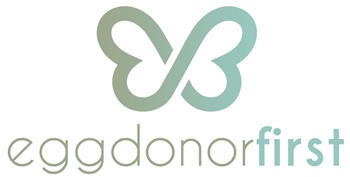Selecting an egg donor is one of the most significant decisions in your family-building journey. While the process might seem overwhelming at first, understanding the key factors to consider can help you make an informed choice that aligns with your family’s needs and values.
Understanding the Basics of Donor Selection
Medical Screening Standards
Modern egg donation programs maintain rigorous screening processes for potential donors, including:
- Comprehensive medical history evaluation
- Genetic testing for inherited conditions
- Psychological screening
- Physical health assessments
- Fertility potential evaluation
Success Rates Context
- Only about 3% of applicants typically qualify as egg donors
- Previous donation success can be indicative but isn’t guaranteed
- First-time donors can be equally successful
- Consider clinic-specific success rates
Key Factors in Choosing Your Donor
1. Physical Characteristics
Consider these aspects while maintaining realistic expectations:
- Ethnicity and racial background
- Hair and eye color
- Height and body type
- Overall appearance
- Family health history
Remember that genetic inheritance is complex:
- Children may not inherit exact donor characteristics
- Features can come from multiple generations
- Genetic expression varies significantly
2. Educational and Professional Background
When evaluating educational background:
- Academic achievements
- Career goals and aspirations
- Special talents and abilities
- Intellectual interests
- Professional accomplishments
3. Personal and Psychological Factors
Look for information about:
- Personality traits
- Childhood experiences
- Family relationships
- Personal values
- Motivation for donation
4. Medical History Considerations
Focus on:
- Family health background
- Genetic screening results
- Previous donation outcomes (if any)
- Overall health status
- Lifestyle factors
5. Blood Type Compatibility
Understanding blood type considerations:
- Not necessarily crucial for medical purposes
- May be important for personal reasons
- Consider privacy implications
- Remember inheritance patterns are complex
The Role of Epigenetics
Understanding epigenetics can provide comfort to intended parents:
- Birth mother’s influence through uterine environment
- Impact on brain development
- Effect on immune system function
- Influence on metabolic health
- Emotional connection during pregnancy
Choosing the Right Donation Program
Key Program Features to Evaluate
- Screening protocols
- Success rates
- Medical expertise
- Support services
- Communication practices
Quality Indicators
Look for programs that offer:
- Comprehensive donor screening
- Experienced medical team
- Strong success rates
- Transparent processes
- Ongoing support
Making Your Decision
Practical Tips
- Create a priority list of desired characteristics
- Understand which factors are “must-haves” vs. preferences
- Consider both immediate and long-term implications
- Trust your instincts while remaining realistic
- Take time to process and reflect
Common Considerations
- Privacy preferences
- Future disclosure plans
- Family dynamics
- Cultural factors
- Personal values
Support During the Selection Process
Available Resources
- Fertility counselors
- Genetic counselors
- Medical professionals
- Support groups
- Online communities
Professional Guidance
Seek support from:
- Fertility specialists
- Mental health professionals
- Program coordinators
- Legal advisors
- Family counselors
Looking Ahead
Future Considerations
- Potential contact preferences
- Medical history access
- Information sharing
- Family planning
- Record keeping
Making the Final Choice
Remember that choosing an egg donor is a personal decision. Consider:
- There’s no “perfect” donor
- Focus on what matters most to your family
- Balance emotional and practical factors
- Trust the screening process
- Maintain realistic expectations
Next Steps
After selecting your donor:
- Complete necessary legal documentation
- Understand the timeline
- Begin medical preparations
- Set up support systems
- Start financial planning
Conclusion
Choosing an egg donor is a significant step in your family-building journey. While the process can feel overwhelming, remember that you’re not alone. Work with reputable professionals, take time to process your feelings, and focus on what matters most to your family’s future. The right choice is the one that feels authentic to your values and aspirations for your future family.





